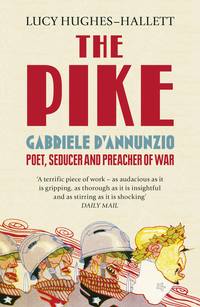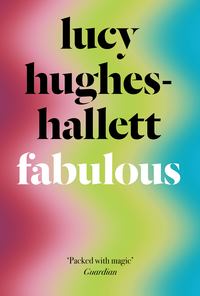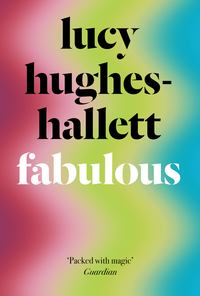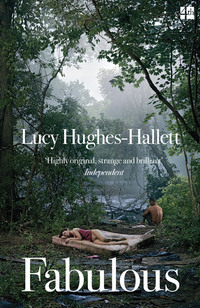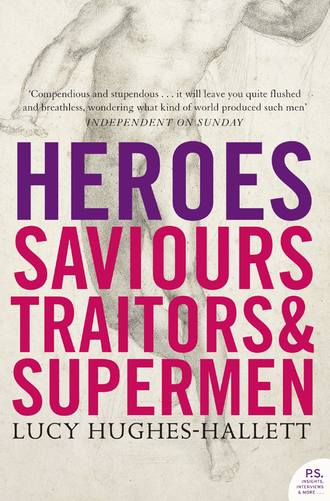
Полная версия
Heroes: Saviours, Traitors and Supermen
The story was made up on purpose for the film – there is no medieval legend, let alone chronicle, in which it appears in that form – but the thinking behind it is sound. A hero’s appearance is sometimes all that is required of him. He can win a battle, or quell a riot, or raise a revolution simply by being seen. He doesn’t have to be active, he doesn’t even have to be alive. Indeed it isn’t necessary that he be actually present: it is enough that he should be so apparently. Achilles sent Patroclus out to fight disguised in his armour, knowing that the mere simulacrum of himself would be terrifying enough to send the Trojans hurtling back towards their walls. Julius Caesar used to wear a cloak of a striking and unusual colour into battle to advertise his presence; and at Thapsus, when he himself was overtaken by an attack of ‘his usual sickness’ (probably epilepsy), he sent a surrogate onto the field in that cloak. Nobody noticed: victory came quickly. A hero, once his fame reaches a certain pitch, becomes a totem, an object of magical potency that need take no action in order to achieve results. Garibaldi, serving France when he was old and crippled by arthritis, was carried around the battlefield on a stretcher: his presence was all the same reckoned to have been invaluable.
It follows that a hero is not always, even in his lifetime, and certainly not thereafter, responsible for the uses to which his image is put. Frequently, as the stories I have to tell demonstrate, a hero is – consciously or unconsciously – the chief actor in a spectacle scripted and directed by others. As Elizabeth and Walsingham used Drake, so Victor Emmanuel and Cavour used Garibaldi. And once dead a hero becomes an infinitely adaptable symbol. Cato’s repeated metamorphoses – from conservative oligarch to Christian saint to martyr in the cause of liberty to Whig parliamentarian – have parallels in most heroes’ afterlives. Every retelling of a heroic story is coloured by the politics and predilections of the teller, whether that teller’s intentions are deliberately propagandist or ostensibly innocent. Looking at heroes, we find what we seek.
What that is exactly depends on the time and place from which we are looking. In telling my heroes’ stories I demonstrate how various are the ways in which heroes appeal to us. Heroes may challenge or comfort, they may offer the elation of victory or the infantilizing luxury of being taken care of by a superhuman protector. They may constitute models of courage or integrity, or they may set enticing examples of transgression and licence. But one thing is constant: they all provide ways of thinking about mortality.
‘Madam,’ so Francis Drake purportedly told Queen Elizabeth, ‘the wings of opportunity are fledged with the feathers of death.’ Heroes expose themselves to mortal danger in pursuit of immortality. Sophocles, writing while Alcibiades was a boy, has the heroically intransigent Antigone tell her sister, Ismene: ‘You chose life, but I chose death.’ Ismene is preparing to compromise her principles, bowing to the powers that be in order to secure herself a safe place in the world; but Antigone would rather die than do so, and so her name will long outlive them both. ‘Many men,’ wrote Sallust, ‘being slaves to appetite and sleep, have passed through life like mere way-farers … The lives and deaths of such men is about alike, since no record is made of either.’ But a few rise above the sordid limitations of physical existence, the repetitive and futile cycle of consumption and excretion and slow decay. Sallust considered Cato, who was his contemporary, to be one of those exceptional beings whose greatness lifts them above the common ruck, who transcend their pitifully ephemeral physical nature, thus holding out the profoundly consoling vision of an existence in which oblivion can be averted and a mortal may escape time’s scythe.
A hero may sacrifice himself so that others might live, or so that he himself may live for ever in others’ memories. But even when his exploits are undertaken for purely selfish and temporal motives of ambition or greed, the very fact of his enduring fame is a token of immortality. Since the prospect of death is something with which we all have to come to terms, the stories of heroes will never lose their fascination. Dead heroes escape the degeneration that awaits the rest of us. ‘They shall not grow old as we that are left grow old’, and it seems to those who survive them that they have evaded death. ‘Being dead they have not died,’ wrote Simonides of the Spartans who died at Thermopylae. ‘Their excellence raised them gloriously out of the house of Hades.’
Hero-worship still plays a vital part in our political lives. It inspires both terrorists and those who combat them. It shapes the rhetoric of our election campaigns. It helps determine the choices made by democratic voters and it eases dictators’ ascent to power. I have chosen not to play the game of spot-the-hero among the people whose names now fill our screens and newspapers but I hope that, while reading this book, others will. The stories I have to tell are legendary or historical, but each one of them is to be read as a parable about the way we live now.
There is an odd kind of inverted vanity that persuades people to imagine that some of our collective follies are brand new, peculiar to the age of mass media. Wrong. As the stories I have told here demonstrate, there is nothing new about the cult of personality, about the calculated manipulation of news for political ends, about the ways in which celebrity and sexual charisma can be translated into power, about the suggestibility of a populace who, in a time of fear or over-excited enthusiasm, can be tempted to hand over their political rights to a glorious Superman. On 12 September 2001 a group of people were photographed near the ruins of the World Trade Center holding up a banner reading ‘WE NEED HEROES NOW’. This book is, first and foremost, a collection of extraordinary stories; but it is also an attempt to examine that need, to acknowledge its urgency, and to warn against it.
I ACHILLES
HOMER’S TROY. Achilles, paragon of warriors, consents to enter the fight. Ready for battle in the armour made for him by the smith-god Hephaestus, he glitters like the sun. His teeth grind, his eyes flash fire. With a voice as plangent as a trumpet’s he calls out to his immortal horses, which no other man can master, and one of them replies. Yes, says the beast, this time the team will bring their master safely back to the Greek camp, but the day of his death already hovers near and when it comes, even were they to have the speed and power of the west wind, they would not be able to save him. ‘You are doomed to die violently, Achilles.’ Achilles’ reply is impatient: ‘Don’t waste your breath, I know, well I know.’ With a terrifying yell he sends his chariot hurtling into the front line.
Of all the warriors who fight at Troy Achilles is the only one who is bound to die there. He is not courting risk: he is confronting certainty, and he himself must take responsibility for his own end. His mother, the goddess Thetis, has told him of the two destinies between which he must choose. He can stay peaceably in his father’s house, and if he does so his life will be long and fruitful. He can marry and have children. He can use his wealth and amass more. He can exploit his strength and exercise his intellect. He can inherit and rule his father’s kingdom, enjoying the satisfactions of power and, in due time, the respect accorded to an elder. Or he can fight. If he chooses the latter he will be killed before the war’s end, but first he will win such glory that his name will live in song for ever more.
He chooses death, buying immortality at the cost of his life. And so he becomes the paradigmatic hero, one whose traits and actions are echoed, with infinite variations, in the life stories of subsequent heroes both legendary and actual. His beauty, his swiftness and ferocity, his unrivalled talent for killing his fellow men, his uncompromising commitment both to honesty and to honour, and, above all, the pathos of his freely accepted death, all combine to invest him with an ineffable glamour.
His choice is not easy. There is an alternative. There is another Homeric epic and another hero, Odysseus, who chooses life, and who is so determined to hang on to all that Achilles has renounced that he will lie, cheat, and steal for it. Odysseus is an intriguer, a shape-shifter, a warrior like Achilles but one noted primarily not for his actions but for his words. Achilles’ foil, he repeatedly calls into question the values Achilles represents both tacitly, by his very existence as one who has taken the opposite path, and explicitly on the several occasions when the two confront each other. In the stories of the heroes who come after them the characteristics of Odysseus and Achilles combine and alternate, but for Achilles himself there can be no half-measures, no partial sacrifice. His choice is absolute and tragic. The brilliance with which his prowess and his physical splendour invest him is simultaneously shadowed and intensified by his inconsolable grief at the prospect of his own end, by his pity for his father and mother in the anguish his death must bring them, and by his mourning for all that he might have been. Throughout the Iliad Homer imagines him questioning the bargain he has made (and which he can at any moment revoke – three days’ sailing would take him home), asking at each setback ‘Was it for this?’ that he decided to forgo so much. He neither despises life nor belittles death. The former he knows to be worth more than all the wealth in the world. The prospect of the latter is dreadful to him. He describes the underworld habitations of the dead as ‘dank mouldering horrors/That fill the deathless gods themselves with loathing’, and he dwells obsessively on the ignominies to which dead flesh is subject.
If Achilles ever lived (something unlikely ever to be proven) he inhabited a culture separated from us by over three millennia, by tremendous changes in belief, in accepted morality, in technology, in human knowledge. Yet his story, as told by Homer, addresses questions as troubling now as they were when Agamemnon’s host laid siege to Troy. ‘Like the generations of leaves, the lives of mortal men’, so a Trojan warrior tells a Greek, as they prepare to fight to the death. The Greek has asked to know his antagonist’s identity. The Trojan’s point is that the question is otiose. If each individual is as expendable and replaceable as this year’s leaves, it scarcely matters who anyone might be. Before the fact of mortality any achievement seems futile, any quarrel petty. Death would make nihilists of us all, were it not for the passion with which humans struggle against its reductive, equalizing influence. Achilles will give anything, including life itself, to assert his own uniqueness, to endow his particular life with significance, and to escape oblivion.
A non-Homeric legend tells how Achilles’ divine mother sought to make her baby invulnerable by dipping him in the waters of the Styx, the river over which the souls of the dead were ferried to the Underworld. The attempt was unsuccessful. The heel by which Thetis held Achilles remained dry, and it was in that heel that he eventually received his fatal wound. Thetis could not keep her son alive, but he was to find his own way to life eternal, a way closely analogous to the one she tried. Just as she had sought to save him from dying by immersing him in the waters of death’s river, so he cheated death by embracing it, voluntarily dying in his quest for everlasting life.
The Iliad begins with a quarrel over a girl. By the consent of the full Greek army, two female prisoners have been awarded, one to Agamemnon, king and commander-in-chief, and one to the supreme warrior Achilles, as part of the prize due to each for their exploits in the war. The girl given to Agamemnon is the daughter of a priest of Apollo. The angry god retaliates by sending down a plague. An assembly is called. Reluctantly, Agamemnon agrees to return the girl to her father, but demands compensation. If he cannot keep his own prize he will take someone else’s. Achilles, who is not only the paragon of warriors but also the scrupulous guardian of the warriors’ code of honour, protests that to do so would be disgraceful. Agamemnon is defiant. He is the overlord and will have his way regardless of another’s opinion: ‘Let that man I go visit choke with rage.’ Achilles, beside himself, declares that he will sail for home if Agamemnon perpetrates such an outrage against the code of conduct they all observe. Agamemnon rounds on him and declares his intention of taking Achilles’ own prize, the girl Briseis. For a moment Achilles is ready to kill him, but he is restrained by the voice of wisdom, Pallas Athena. Instead, he swears a great oath that he will not fight again in the quarrels of the house of Atreus. Leaving the assembly he withdraws to his tent at the end of the Greek lines, and there he stays. The rage of Achilles, the passion that is at once so disastrous and so magnificent, and which has earned his immortality, is not the savage blood-thirst that drives him on the battlefield, but the principled fury that keeps him off it.
This argument is far more than a squabble over possession of a slave. It is a dispute over the nature of superiority. Agamemnon tells Achilles he will take his girl ‘so you can learn just how much greater I am than you’. But is a man’s worth dependent on his rank, or on his talent? Is it a function of his social and political relationships, or can an individual possess a value independent of his place in the community? Is Agamemnon, as old Nestor says, the more to be honoured ‘because he rules more men’? Or might Achilles, whose claim to supremacy lies entirely in himself, in his own particular, unsurpassed brilliance, be the greater man? These questions are fundamental. Their answers must affect the conduct both of individuals and of states, determining the relationship between political institutions and the people of whom they are constituted.
Achilles is an exceptional being. The son of a goddess and repeatedly described by Homer as being himself ‘godlike’, he is innately superior to his fellows. His beauty, his size, and his speed are all prodigious. He is a divinely created aristocrat, a living demonstration that men are not born equal. Pindar, the fifth-century poet who was classical Athens’ most eloquent upholder of the class system, celebrated his prowess, his ‘hands like Ares’, his feet like lightning’. In the Iliad he is physically magnificent. When he loses his armour he cannot borrow more from any of his fellow Greeks, for none of them, with the possible exception of Ajax, is as tall as he. The perfection of his body is sublime, the loveliness of his features flawless. His beauty, potently erotic, marks him, like Helen, as a superhuman being. He is ‘brilliant’, literally: in armour he shines like the sun. He is faster than any of his peers and therefore more deadly in battle. When he chases Hector three times round the walls of Troy, hunting him as a hawk hunts a terrified dove, it is his speed as much as his courage and his strength that makes him invincible. Destined never to grow old, he has a young man’s splendour and a young man’s energy. His emotions are extreme, his responses passionate, his actions devastating. For all these reasons he is unique among the Homeric warriors. Nestor may be wiser, Odysseus more astute and articulate, Ajax stronger in a hand-to-hand fight; but Achilles is, by common consent, the ‘best of the Achaeans’. Only Agamemnon disputes his right to that title, and he does so on political grounds. He doesn’t claim that he is a greater individual than Achilles. He bases his challenge on the assumption that no individual can count for as much as a community, and that therefore the ruler of that community is, by definition and regardless of his or anybody’s else’s personal qualities, the greatest person in it. Extraordinary as Achilles’ gifts may be, they do not procure him especial status. Agamemnon tells him, ‘You are nothing to me!’
That would be enough to enrage Achilles, but there is more. Beyond the competition between Agamemnon the king and Achilles the hero lies the question of the legitimacy or otherwise of the war in which they are engaged. The disputed women are prizes, not booty. (They are also of course human beings whose rights, judged by modern standards, are being grossly violated – but let that be.) They have been awarded to the two men as marks of honour. They are not mere chattels to be passed from tent to tent, any more than a medal awarded for valour is only a coin on a ribbon, or an athlete’s gold cup just an expensive drinking vessel. A prize awarded to one person cannot be appropriated by another without its meaning being erased and the symbolic code within which it existed being called into question. In demanding Briseis, Agamemnon is acting, not like a warrior eager for glory, but like a bandit greedy for loot. In doing so, he shames not only himself, but the whole Greek army. In the gruesome setting of the battlefield, a situation where men are all too easily reduced to the level of beasts of prey, or to carrion, it is essential to hold fast to the elusive concept of honour as a talisman against horror and despair. Achilles came to Troy to avenge the insult done to Agamemnon and his brother Menelaus when the Trojan prince Paris abducted Helen, Menelaus’ wife – to protect their honour. But if Agamemnon seizes Briseis, then he is a rapist and an abductor, just as Paris is. The Greeks’ invasion of Priam’s kingdom is revealed to be no more than a predatory attack on a wealthy victim, and Achilles no longer a warrior in a noble cause but the underling of an unprincipled looter. If he dies he will do so ignominiously, in the prosecution of a stupid, brutal war, and the eternal fame for which he hoped will be denied him. As he later tells those who come to implore him to return to the field, there is no point in doing so once Agamemnon has robbed fighting of its meaning. The King’s rapacity has levelled all value, trivialized all achievement. In a world in which the distinction between the noble warrior and the thug has been erased, ‘The same honour waits for the coward and the brave. They both go down to death.’
When it becomes clear that the Greeks will continue to obey Agamemnon, Achilles turns his back on them, becoming, like so many subsequent heroes, a voluntary outcast from a society he despises. Self-exiled, he is isolated. His only companion is Patroclus, the beloved friend who has followed him to Troy. Always exceptional, he is now unassimilable. He respects no human jurisdiction. He defers to no one; he fears no one. In Homer’s telling of his story he is the champion of individualism against the compromising demands of the community, the defender of the loner’s purity against the complex imperfections of the group. In that role he is superb, but potentially lethal to any ordered state. When an embassy comes to him from Agamemnon, imploring him to rejoin the fighting, promising him splendid gifts and the restoration of his honour, he rejects the offer: ‘I say my honour lies in the great decree of Zeus.’ He asks nothing of his fellows now, nor does he acknowledge any claim they might make on him. In a ferociously apocalyptic vision he prays that Greeks and Trojans alike may cut each other to pieces, leaving no one alive but Patroclus and himself, so that the two of them might, alone, bring Troy’s towers toppling down. In his tent, he plays the lyre and sings to himself of ‘the famous deeds of fighting heroes’. He acknowledges allegiance now not to any living society, but only to his dead peers, each one exceptional, brilliant mavericks like himself.
While Achilles broods his fellow Greeks fight on. Slowly, inexorably, over several days, the Trojans, led by Hector, force them back across the coastal plain. Their leaders – Agamemnon, Diomedes, Odysseus – are all wounded. They throw up a rampart of rocks and clay to protect their ships. The Trojans breach it. The two armies are fighting hand to hand on and around the ships, the beach is black with blood and the air full of the scorching heat and ferocious crackle of the firebrands when Patroclus comes weeping to Achilles, begging his friend to relent, to save the Greeks from defeat and from the horror of being marooned in a hostile land, their ships burned, to be massacred or enslaved. Achilles is moved, but he has sworn he will not join the battle unless the Trojans menace his own ships, still secure at the furthest end of the Greek lines. He will hold to his vow. He will not fight in person. But he agrees to a compromise. He will lend Patroclus his armour and send him out to battle in his stead.
A hero of the stature of Achilles has only to show himself in order to alter the course of events. Encased in the magnificent star-emblazoned, silver-studded bronze armour, which is immediately identifiable to Greek and Trojan alike as that of the terrible Achilles, with a great crest of horsehair tossing on his helmet’s crest, Patroclus leads out the Myrmidons, ‘hungry as wolves that rend and bolt raw flesh,/Hearts filled with battle-frenzy that never dies’. Seeing him, the Trojans quake, their columns waver. Achilles appears to have returned, bearing with him ‘sudden, plunging death’. Shrieking, wild as storm clouds driven by a cyclone, the Trojan army stampedes back and away from the Greek ships, back towards the safety of their own walls.
In the fighting that follows Hector kills Patroclus and strips from his corpse the armour of Achilles. When the news is brought to Achilles he lays aside his quarrel with Agamemnon. In the frenzy of his mourning all scruples about propriety, about honour, about the sanctity of vows, are forgotten. He resolves to fight the next day, but first he displays himself to his enemy. As twilight descends he climbs alone and unarmed onto the rampart before the Greek ships. Pallas Athena, whose favourite he is, crowns him with a diadem of fire that blazes from his head to the sky, and slings around him a shield of flaring storm. Furious with grief for his slaughtered friend, he lets loose three times a war cry so piercing and terrible that the Trojans whirl round in panic. ‘Twelve of their finest fighters died then and there, crushed by chariots, impaled on their own spears’, killed by the mere sight and sound of the awful Achilles.
‘The man who is incapable of working in common, or who in his self-sufficiency has no need of others, is no part of the community,’ wrote Aristotle. Such a man is ‘like an animal or a god’. Achilles, who has divorced himself from the fellowship of the army, who looks to Zeus alone for the validation of his claim to honour, has made himself independent of his fellow men. He re-enters the battle not to save his compatriots, but in pursuit of a private revenge. In the cataclysmic battle that follows he is both subhuman and superhuman, both bestial and divine. He is likened to a forest fire, to a massive ox threshing barley, to a lion (repeatedly), to the Dog Star that rains down pestilence, to the frenzied god of war. He kills and kills and kills until the earth is drenched with blood and the river that flows before the walls of Troy is choked with corpses. His rampage is outrageous, so transgressive in the extremity of its violence that earth and heaven alike are angered by it. The river rises up against the desecration of its waters: a tremendous tidal wave threatens to engulf Achilles and sweep him away. The god Hephaestus, to protect him, hurls a great fireball down from heaven. The blaze races across the plain, blasting trees and corpses and scorching the river banks until the river is all but dried. The conflict is elemental, apocalyptic, and at its centre Homer places Achilles, a figure from a nightmare, trumpet-tongued, gigantic, shrieking out his rage, his sharp-hoofed stallions trampling on corpses, sending up sprays of blood, blood on his wheels, blood on his chariot’s handrail, ‘bloody filth splattering both his invincible arms’.
In this war the Trojans are at home. At night they retire from the battlefield to well-built halls, to wives and children. They belong to a polity. Even the bravest warrior among them must defer to the civil authority, King Priam. They have temples and priests. The landscape in which they do battle with the Greeks is one they have tamed and made productive. Their horses have grazed the earth that is now slippery with blood. The spring past which Achilles chases Hector has been their washing place. Their babies wave to them as they advance through the Scaean Gates. Their parents and elders line the city walls, watching the fighting from a position of security. Hector is husband, father, son, and brother, as well as being the protector of his home and his fellow citizens. In the frenzy of battle he may become, like Achilles, as fierce as a wild beast, but he is essentially domestic. On the day of his death his wife Andromache sits weaving as she waits for him, within earshot of the fight, and her women have the water heated ready for his bath.


